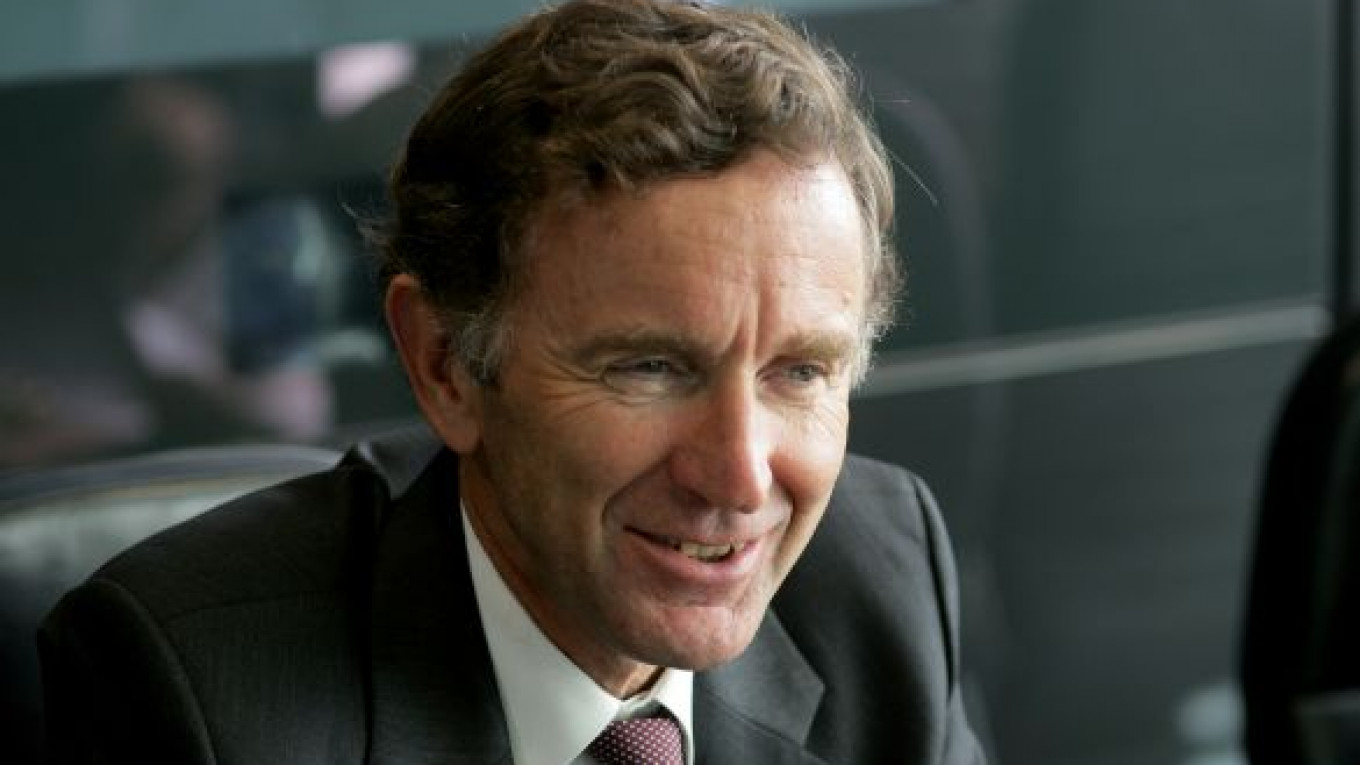British officials are hoping to capitalize on the success of the London Olympics by selling their event expertise to the organizers of the Sochi 2014 Winter Games and the 2018 World Cup.
Trade and Investment Minister Lord Stephen Green and John Cridland, the director general of the Confederation of British Industry, singled out major sporting events as a target for British exporters as they kicked off a three-day trade mission to the country at the British Ambassador's residence Tuesday.
The 25-company trade mission has identified 10 target sectors, including sporting events like the 2014 games, the Russian Railways Investment program, and development of the Skolkovo innovation hub, as potential areas for British companies to participate in.
The value of goods exported by Britain to Russia has jumped 80 percent in the past two years to about £5 billion ($8 billion), making it Britain's fastest growing export market, according to British government figures. About a third of that amount is accounted for by the automotive industry, particularly the luxury segment, while another 20 percent comes from other forms of engineering, Cridland said.Other sectors the group identified as attractive include food and drink and creative industries such as fashion and music.
The mission is part of an effort to boost growth by medium-sized British companies that have previously been underrepresented in Russia. "It's the obvious market for these companies to come to if over the next few years there is not enough growth to sustain their businesses in Western Europe," said Cridland.
The delegation follows up on a 2011 visit to Moscow by Prime Minister David Cameron that sought to boost trade ties and smooth over the differences after several years of frosty relations between the two countries after the murder of former KGB agent Alexander Litvinenko in London and the discovery of a British "spy rock" in Moscow in 2006.
Green acknowledged that there are still "areas of difference" politically but insisted that trade and commercial relations are "very good."
"The fact that Rosneft and BP were able to find a way forward helps improve the confidence with which other British business view investing in the Russian market," he said.But the trade and investment initiative comes against a background of growing concern in Britain that the profit motive could blind Cameron's government to human rights abuses.
Former British Ambassador Tony Brenton on Monday called for a harder line on Russia's "democratic deficit."
Brenton, who served as ambassador between 2004 and 2008, said in an article in the Guardian on Monday that all European governments should follow German Chancellor Angela Merkel's tougher stance on human rights issues in Russia.
The intervention came after a lobby group that includes several Conservative party MPs was accused of helping the Russian government to downplay human rights concerns in the interests of making money.
Former Foreign Secretary Malcolm Rifkind resigned as honorary president of Conservative Friends of Russia last week after the group was accused of launching a homophobic smear campaign against a Labour MP at the behest of the Russian Embassy.
The incident led one columnist to derisively dub the group "Tories for Putin." The group's founder, a public affairs manager for a bookmaker, has denied any link to the Russian government.
Related articles:
A Message from The Moscow Times:
Dear readers,
We are facing unprecedented challenges. Russia's Prosecutor General's Office has designated The Moscow Times as an "undesirable" organization, criminalizing our work and putting our staff at risk of prosecution. This follows our earlier unjust labeling as a "foreign agent."
These actions are direct attempts to silence independent journalism in Russia. The authorities claim our work "discredits the decisions of the Russian leadership." We see things differently: we strive to provide accurate, unbiased reporting on Russia.
We, the journalists of The Moscow Times, refuse to be silenced. But to continue our work, we need your help.
Your support, no matter how small, makes a world of difference. If you can, please support us monthly starting from just $2. It's quick to set up, and every contribution makes a significant impact.
By supporting The Moscow Times, you're defending open, independent journalism in the face of repression. Thank you for standing with us.
Remind me later.






